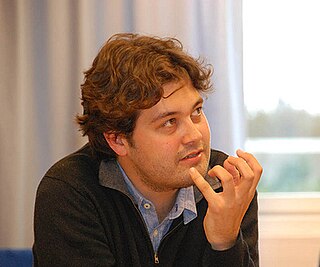Related Research Articles
Ellen Taaffe Zwilich is an American composer, the first female composer to win the Pulitzer Prize for Music. Her early works are marked by atonal exploration, but by the late 1980s, she had shifted to a postmodernist, neoromantic style. She has been called "one of America's most frequently played and genuinely popular living composers." She was a 1994 inductee into the Florida Artists Hall of Fame. Zwilich has served as the Francis Eppes Distinguished Professor at Florida State University.

Amy Marcy Cheney Beach was an American composer and pianist. She was the first successful American female composer of large-scale art music. Her "Gaelic" Symphony, premiered by the Boston Symphony Orchestra in 1896, was the first symphony composed and published by an American woman. She was one of the first American composers to succeed without the benefit of European training, and one of the most respected and acclaimed American composers of her era. As a pianist, she was acclaimed for concerts she gave featuring her own music in the United States and in Germany.
George Rochberg was an American composer of contemporary classical music. Long a serial composer, Rochberg abandoned the practice following the death of his teenage son in 1964; he claimed this compositional technique had proved inadequate to express his grief and had found it empty of expressive intent. By the 1970s, Rochberg's use of tonal passages in his music had provoked controversy among critics and fellow composers. A professor at the University of Pennsylvania until 1983, Rochberg also served as chairman of its music department until 1968. He became the first Annenberg Professor of the Humanities in 1978.

John Luther Adams is an American composer whose music is inspired by nature, especially the landscapes of Alaska, where he lived from 1978 to 2014. His orchestral work Become Ocean was awarded the 2014 Pulitzer Prize for Music.
John Harris Harbison is an American composer, known for his symphonies, operas, and large choral works.
Lawrence Dillon is an American composer, and Composer in Residence at the University of North Carolina School of the Arts. His music has a wide range of expression, generally within a tonal idiom notable both for its rhythmic propulsiveness and a strong lyrical element. Acclaimed particularly for his chamber music, he has also written extensively for voice and large ensembles.
Arnold Atkinson Cooke was a British composer, a pupil of Paul Hindemith. He wrote a considerable amount of chamber music, including five string quartets and many instrumental sonatas, much of which is only now becoming accessible through modern recordings. Cooke also composed two operas, six symphonies and several concertos.
Philip Cashian is an English composer. He is the head of composition at the Royal Academy of Music.
Ross Lee Finney Junior was an American composer who taught for many years at the University of Michigan.
Kenneth Allen Woods is an American conductor, composer and cellist, resident in the UK.

Sylvie Bodorová is a Czech composer. During a career spanning from the late 1970s to the present day she has composed a large number of works for various instruments, both solo and orchestral pieces, and produced commissions for cities, festivals and organisations around the world. She was a founder member of the Czech classical group Quattro, formed in 1996.

Lawrence Power is a British violist, born 1977, noted both for solo performances and for chamber music with the Nash Ensemble and Leopold String Trio.

Andreas Makris was a Greek-American composer and violinist, born in Kilkis, Greece, on March 7, 1930. He was a Composer-in-Residence for many years at the National Symphony Orchestra in Washington DC, working with conductors such as Howard Mitchell, Mstislav Rostropovich, Antal Dorati, and Leonard Slatkin. He composed around 100 works for orchestra, chamber ensembles, and solo instruments, including the Aegean Festival Overture, which, transcribed for concert band by Major Albert Bader of the USAF Band, became a popular piece with US bands. Grants and awards he received include the Damroch Grant, National Endowment for the Arts Grant, the Martha Baird Rockefeller Award, ASCAP Award, the Fulbright Scholarship, and citations from the Greek Government.
Roger John Goeb was an American composer.
Vladimír Soukup was a Czech post-romantic composer.
Graham Whettam was an English post-romantic composer.
Emily Lenore Doolittle is a Canadian composer, zoomusicologist, and Athenaeum Research Fellow and Lecturer in Composition at the Royal Conservatoire of Scotland based in Glasgow, Scotland.
References
- ↑ Crawford, Rich (Spring 2005). "MUSA's Early Years: The Life and Times of a National Editing Project", American Music 23(1).
- ↑ Beckwith, John (Spring 1996). "Review Essay: Music of the United States of America", American Music 14(1).
- ↑ Kearns, William. (1998-99). "MUSA: An American Monument", The American Music Research Center Journal 8/9.
- ↑ Burkholder, J. Peter (Spring 1995). "MUSA's Debut", L.S.A.M. Newsletter 24(2).